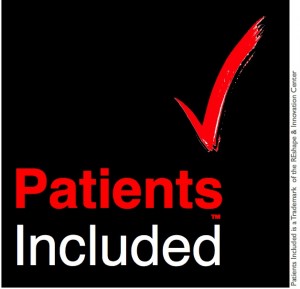 Updated 6/4 in response to Tony’s comment, described below.
Updated 6/4 in response to Tony’s comment, described below.
I’m speaking today at the fifth annual Patient & Family Centered Care conference, hosted by PFCC Partners in Long Beach, California. (They’re not related to the similarly named IPFCC.)
At today’s lunch panel, a 17 year old patient advisor named Jack, from Flagstaff, Arizona, said he got some great advice (from co-panelist Tony White – see his comment below) that I think all such advisors and advocates should adopt:
“Don’t tell people you volunteer at the hospital –
say you’re doing it pro bono.”
“Pro bono” is short for “pro bono publico,” which is Latin for “for the public good.” It’s the term professionals use (e.g. attorneys) when they donate valuable services instead of being paid.
Why does this matter? Because in any field, there’s a clear differentiation between things people get for free and things they pay for. (Ever heard the expression “You get what you pay for?”) Lucien Engelen’s Patients Included movement calls for every medical conference to subsidize patient participation; today the norm in that movement is that patients aren’t charged to participate, and sometimes have their expenses paid … but they must still take time off work, and even if they’re retired or unemployed, they still must donate their time.
It can be downright insulting (or just silly) when a host protests, as I’ve been told: “But, but, your voice is really important to us.” Early in my speaking career I sometimes replied, “Really important, and worth exactly $0? I’m sorry, my schedule won’t allow that.”
I don’t want to tell patients to stop volunteering – but it’s time for us all to recognize that there’s real value in what patients contribute. So let’s call it what it is: donated contributions of time and thought. Pro bono publico – for the public good.
_____________
Update 6/4:
In Tony’s comment he points out that there’s something distinctive about the specific role of the patient / family advisor – a specific set of skills. I’ve never done that job but my gut says I’d agree. And I think that’s a good rule of thumb for the difference between “just volunteering” (e.g. giving directions to hospital visitors) and contributions of specific skills. What do you think?






Dear Dave : So true. The Pro Bono Patient Included !!
Thanks for the support !!
@lucienengelen
Excellent advice, which I will immediately adopt as S.O.P. from this moment forward.
Francie, when you bring this up, I think it’s important to be business-like about it, pointing out that people are realizing there’s genuine value in the patient’s voice, and that some people are even starting to pay patients for their time.
To be clear, I wouldn’t do this myself if I were just being asked a few questions here and there. But if I’m truly *thinking and working* with employees, contributing real ideas etc, that’s legitimately pro bono, I think.
Thanks Dave. I love it!
Hi Dave- In truth, that was my advice to Jack prior to us speaking together on the panel yesterday. It’s my belief that the PFA role is distinguishable from the traditional role of a volunteer. It requires a specialized skill set and/or experience that one brings to the position.
Thanks, Tony – in the moment (from the back of the room) I didn’t hear what Jack said about where he got the advice, so I’m really grateful to know. I updated the post, and added a note at the bottom that I hope will trigger some discussion (or at least some silent thoughts!)
Great post. I wholeheartedly agree. In fact, I would go further and challenge that in re-imagining healthcare, we commit to paying people who directly help improve health and save the system money to a percentage of the money saved.
Figuring out a fair way to capture and measure this value to the public good is one of the things I am really excited about. I think i is just what we need to patch up the strained social security system.
What do you say when you receive “pro bono” dental work, and it’s bad, ruins your face and takes away your ability to bite, to chew? Do ‘pro bono’ cases like that mean you are simply stiffed if you cannot repair the horrid damages? He wanted free publicity, got it – I got a nightmare!
Pro Bono, volunteer, whatever. If you speak from expertise or assert you are an expert, you MAY be subject to legal action or cause of action if someone relies on your information. I suggest professional liability insurance for professionals. Non- professionals, you’re on your own.